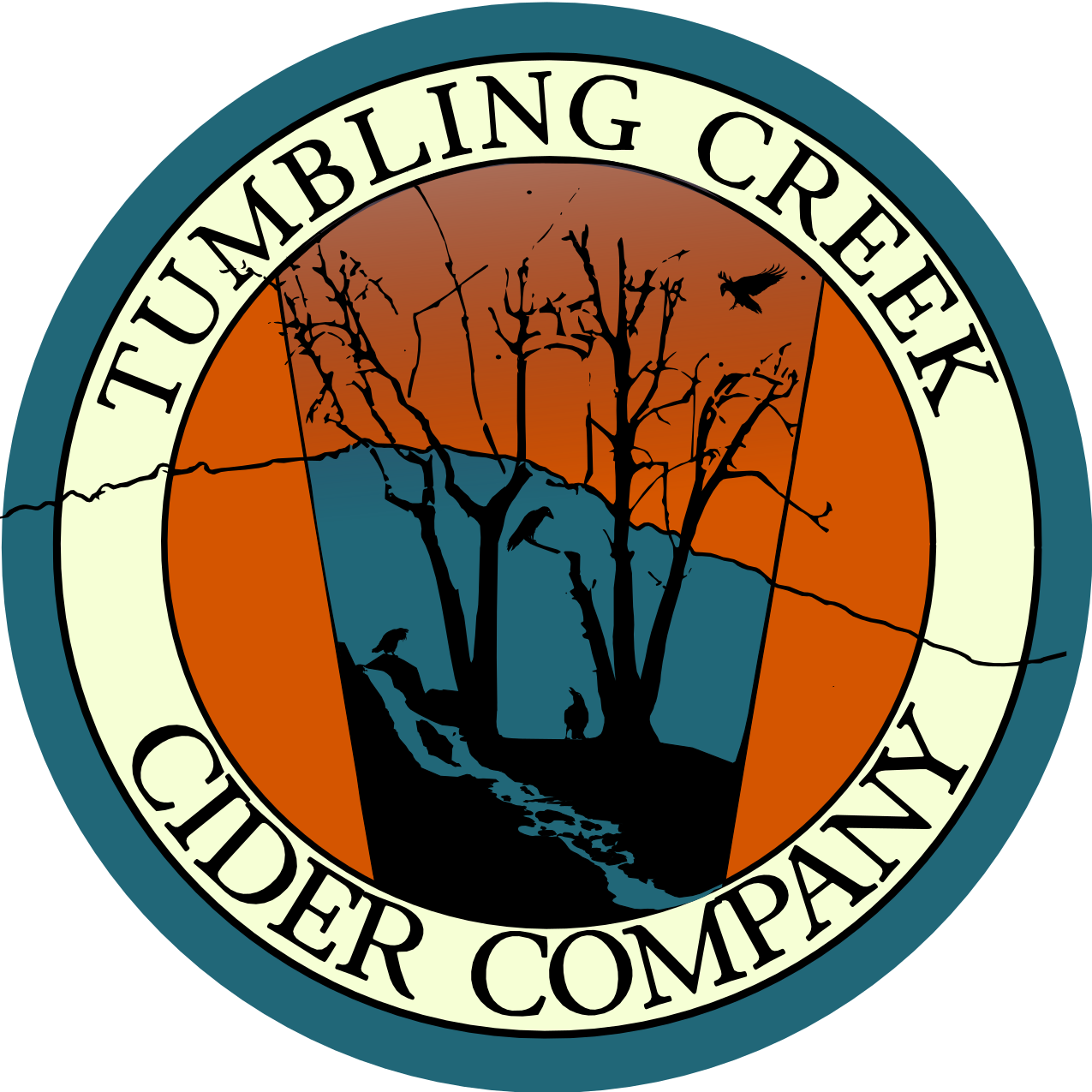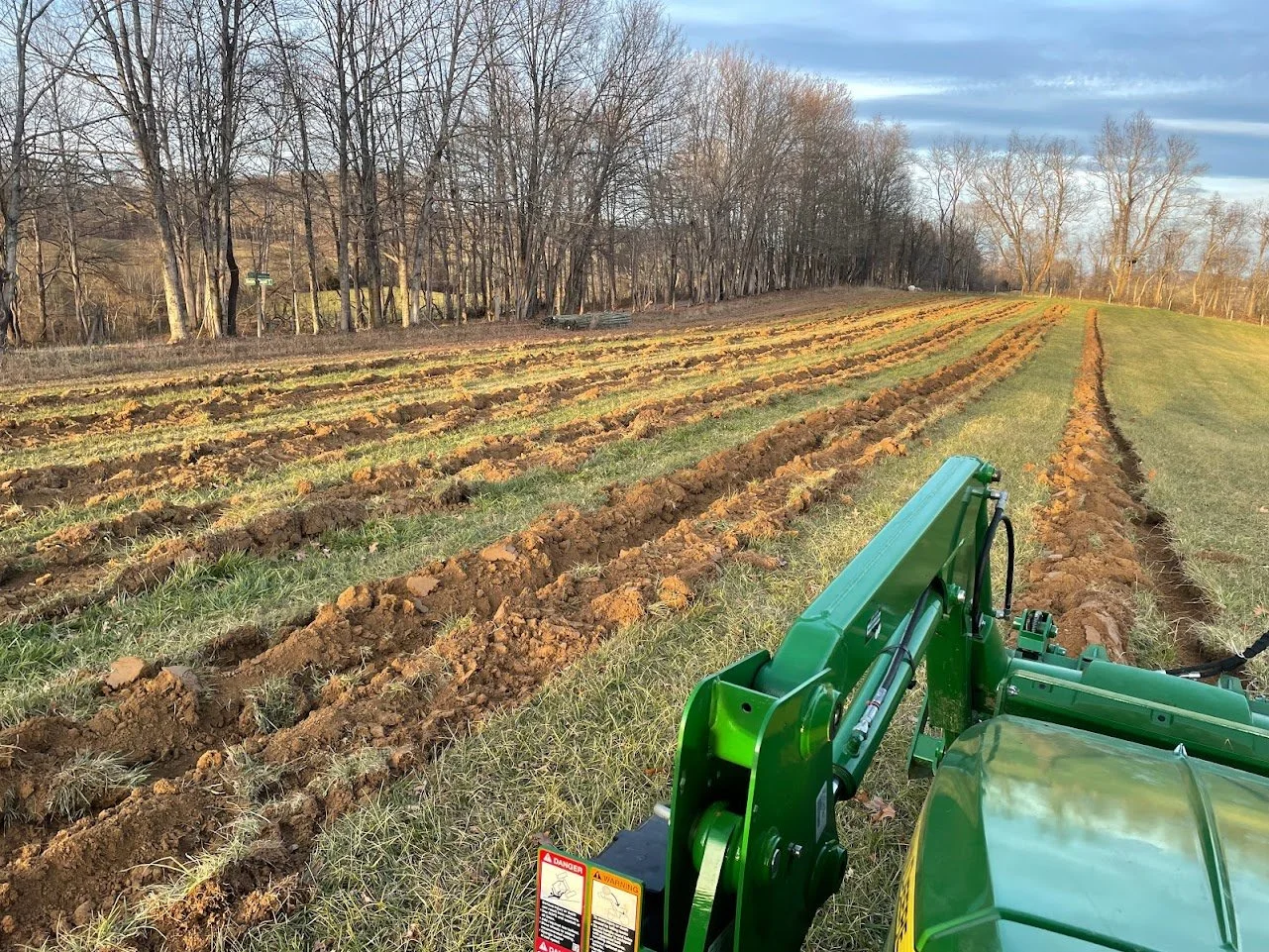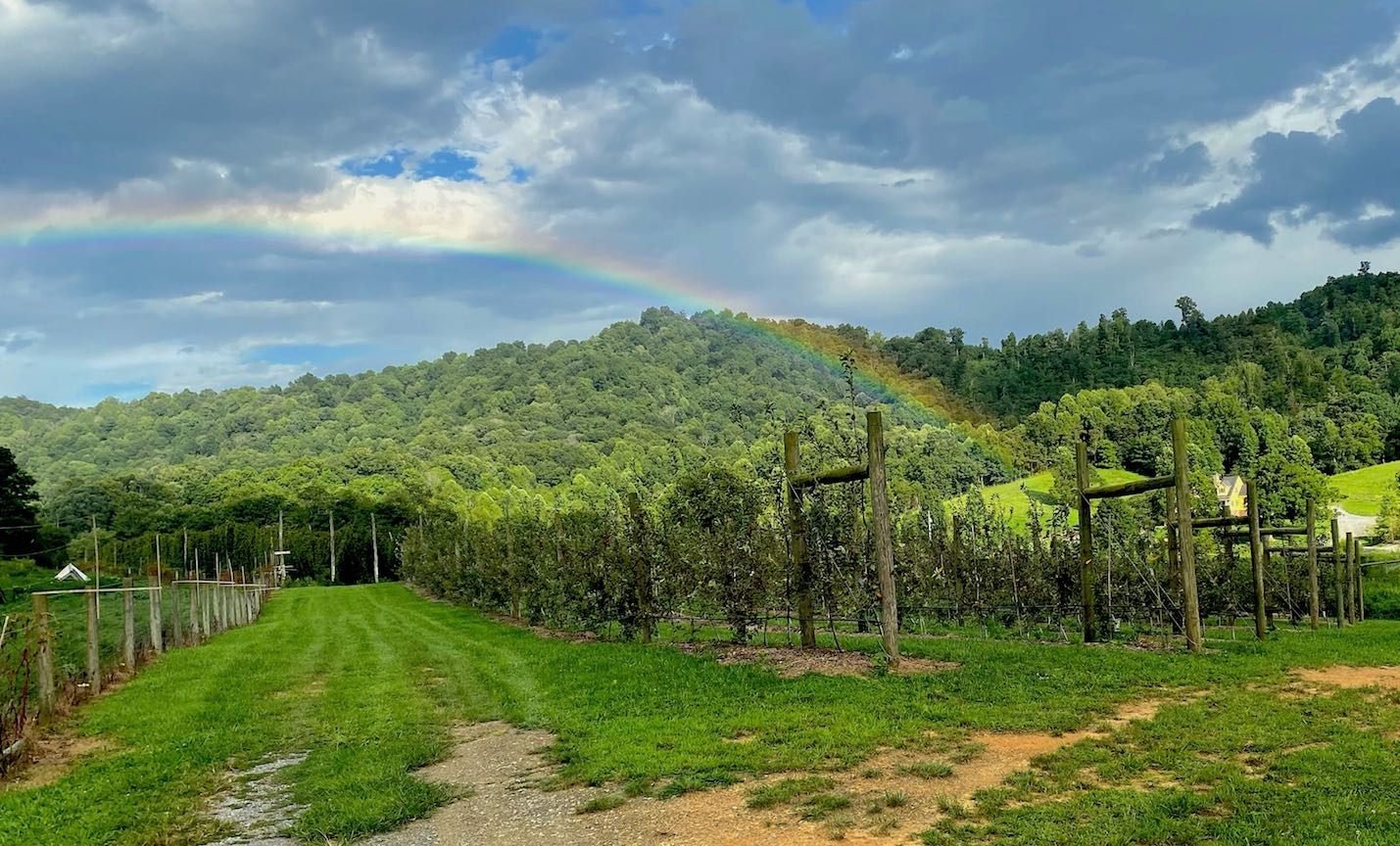Terr-a-what, now?
We don’t mean to brag, but we happen to know that this little slice of Appalachia is perfect for the growing of cider apples.
The American Cider Association calls a “harvest driven cidermaker,” one that makes “75% of cider with apples that are pressed at or close to harvest.”** That’s US! We also take great pride is using locally grown hops, peaches, ginger and other ingredients that are central to our cidermaking. As much as we believe in our recipes, we have to tip our hat to the Blue Ridge and acknowledge that the earth itself is much the cause of our success.
Lets talk about terrior.
Expanding the orchards at Kelly Ridge Farm.
The term "terroir" (pronounced like tehr-WAAR) is often associated with wine, but when it comes to apples, Virginia's terroir plays a vital role in shaping the flavors and characteristics of the fruit.
Terroir encompasses the environmental factors that influence the taste, aroma, and texture of agricultural products.
In Virginia, the terroir is a symphony of elements—climate, soil, elevation, and regional microclimates—that contribute to the distinctive qualities of apples grown in the state.
The unique combination of these factors imparts a sense of place to Virginia apples, setting them apart in the world of cider production. This factor alone is reason enough to capture those flavors right after harvest.
We get out of the way and let the complex flavors have all the attention.
Virginia's climate is characterized by warm summers and moderate winters, creating an ideal environment for apple orchards. The seasonal temperature variations contribute to the development of complex flavors in the apples, as the fruit experiences a range of temperatures throughout its growth cycle. This interplay of warm and cool periods enhances the sweetness, acidity, and overall character of the apples. At Tumbling Creek, we work hard to let the apples do their job. We get out of the way and let the complex flavors have all the attention.
Kelly Ridge Farm hops and orchard.
The diverse soil types found in Virginia further contribute to the terroir of the region. From the fertile soils of the Shenandoah Valley to the well-drained loam of the Piedmont region, each area imparts distinct mineral nuances to the apples.
These soil variations influence the apple trees' nutrient uptake, affecting the composition of the fruit and, consequently, the flavor profile of ciders produced from these apples.
Hard at work on the harvest at Kelly Ridge Farm.
Virginia's terroir has a profound impact on the apple harvest, influencing not only the quality but also the diversity of apple varieties available to cider makers.
At Tumbling Creek, we are inspired by this variety and have expanded our orchards to allow for dozens of varieties to take root and thrive.
Whether you’re opening a bottle of the Hellbender Hopped, trying out our Peach, leaning into a High Trestle or trying out our Moonshot, be sure to take note of the aroma, richness, or even texture of each glass.
And remember, each of our ciders tells its own story about this land and region.
If you listen closely, you’ll find that the flavors are
Appalachian
to the Core.
Interested in a tour of Kelly Ridge Farms? Contact us for scheduling and availability. We’d love to show you around
For more on the beautify of this region, check out Visit Abingdon.
**Definitions and data thanks to the American Cider Association’s article entitled: ACA Announces Results of Inaugural Harvest Driven Cider Survey by Woodley Smith.




